Puzzles for Teachers
Browse an extensive collection of printable puzzles, brain teasers, mazes, crosswords, digital activities and a whole lot more to challenge your primary students in fresh and fun ways!
This teaching resource collection is teacher-created, with curriculum-aligned and editable resources available for both lesson planning and adding to your fast finisher activity box!
Curious about using puzzles in your classroom or looking for fresh ideas? Read on for a primer from our teacher team!
Types of Puzzles
There's a whole host of puzzles out there you can use to get your students more engaged in learning, develop problem-solving skills and reinforce the concepts you're teaching! Here are a few favourites from our teacher team (and you'll find printable versions of many of these in this collection)!
- Picture puzzles — Picture puzzles are a great teaching tool that require kids to use visual perception and problem-solving skills to identify patterns or differences in a set of pictures.
- Crossword puzzles — Often used by adults, these puzzles are kid-friendly too! They offer written clues and require students to fill in a grid with words that intersect.
- Tangram puzzles — These challenging puzzles for kids involve using a set of geometric shapes to create a larger picture or design.
- Logic puzzles — This learning tool requires kids to use reasoning and deduction to solve a problem. They usually involve a set of clues that need to be used to figure out the solution.
- Word searches — In this type of puzzle, a grid of letters is given with a list of words to find hidden within it. Students are challenged to go on the hunt for the word, often reading up, down, diagonally and sometimes even backward!
- Spot the difference — A popular feature in kids' magazines, these require our students to find the differences between two nearly identical pictures.
- Sequence puzzles — Sequence puzzles involve arranging a series of objects or symbols in a particular order, based on a set of rules or patterns. For example, students may practise skip counting as they place puzzle pieces in order based on the numbers displayed on each piece.
- Maze puzzles — Yes, mazes count as puzzles! They challenge kids to find their way through a maze to reach a goal or endpoint.
- Matching games — This is another type of puzzle you may not think of as a puzzle per se, but it is! Matching games involve finding pairs of matching items, such as shapes, colours, or numbers, in a set of cards or objects.
- Tarsia puzzles — Similar to jigsaw puzzles, tarsia puzzles are made up of irregularly shaped pieces that fit together in a specific way to form a larger picture or pattern. This type of puzzle has a twist, however! In a Tarsia puzzle, each piece contains a problem or question related to a particular topic or subject area. The students must match the pieces together by finding the correct answer or solution to each problem or question. Once all the pieces have been matched, they form a larger picture or pattern that provides a visual representation of the topic or concept being studied.
How Do You Use Puzzles in the Classroom?
Whether you're using tarsia puzzles to teach maths or crossword puzzles in your reading rotations, this is a versatile learning tool! Here are a few of the times they can come in handy:
- Introducing new concepts
- Reviewing concepts students have learned
- Reinforcing problem-solving skills
- Collaborative learning
- Learning through play
- Differentiated instruction
- Free Plan
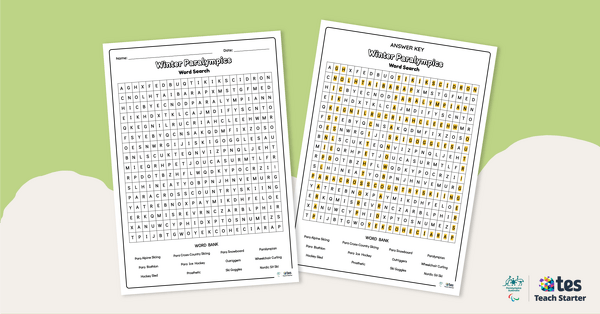
Winter Paralympics Word Search – Upper Years
Build vocabulary related to the Winter Paralympic Games with this engaging word search activity for upper primary students.
- Plus Plan
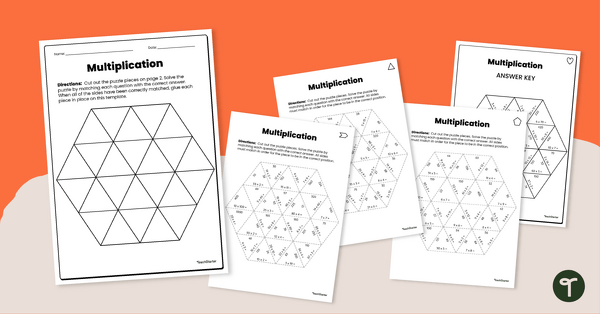
Multiplication Puzzles - Tarsia with Answers
Practise multiplication facts with these fun printable multiplication puzzles
- Plus Plan
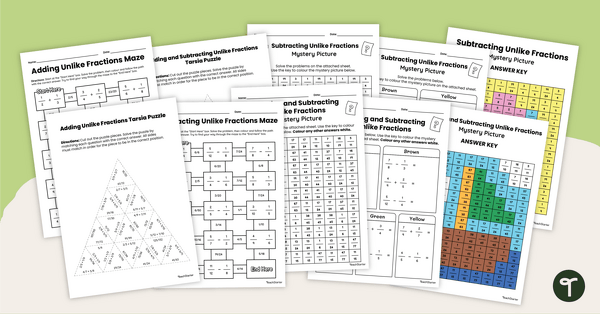
Adding and Subtracting Unlike Fractions Puzzle Pack
Get your students adding and subtracting fractions with unlike denominators with this set of nine fraction puzzles!
- Plus Plan
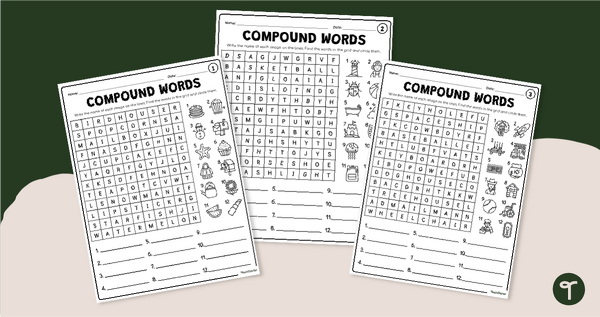
Compound Words - Word Search Pack
Search, find, and spell compound words with a fun set of Compound Word Word Search Puzzles!
- Plus Plan
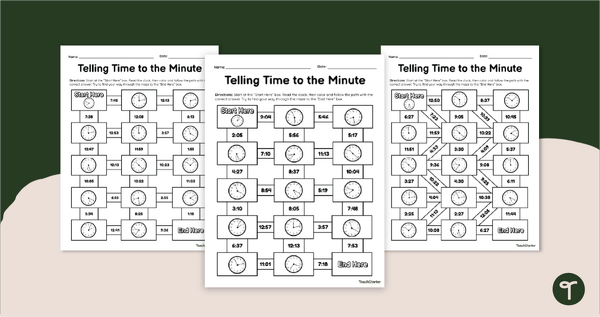
Time in Minutes - Maths Maze Worksheets
Tell time to the nearest minute while finding your way through this set of 3 Telling Time to the Minute maths mazes.
- Plus Plan
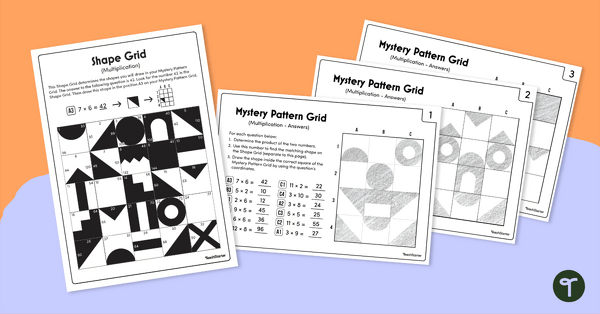
Mystery Pattern Grids (Multiplication)
Students solve multiplication facts, interpret grid coordinates and draw shapes to reveal a mystery picture.
- Plus Plan
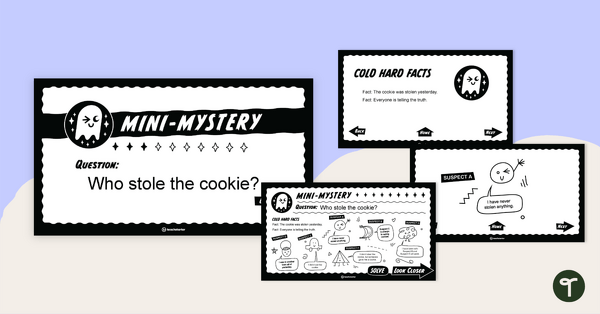
Mini-Mystery – Who Stole the Cookie? – Interactive PowerPoint
An engaging, process of elimination activity where students read clues to solve the mystery.
- Plus Plan
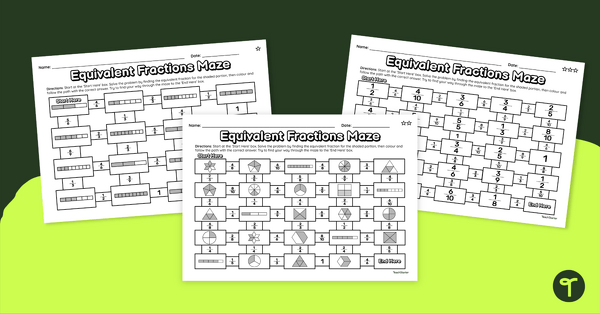
Equivalent Fractions – Differentiated Maths Mazes
Encourage students to practise their understanding of equivalent fractions with this set of differentiated maths mazes.
- Plus Plan
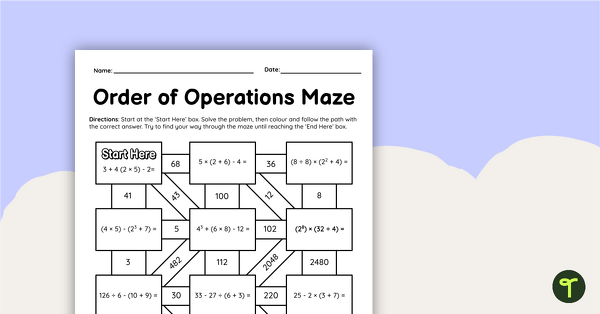
Order of Operations – Maths Maze
Evaluate numerical expressions using the order of operations with this math maze!
- Plus Plan
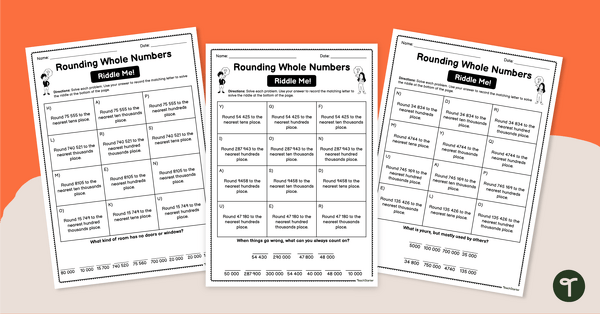
Rounding Whole Numbers – Riddle Worksheets
Integrate riddles and maths with this set of rounding worksheets.
- Plus Plan
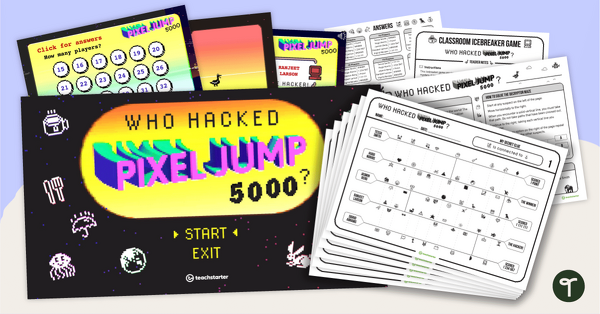
Classroom Icebreaker Game – Who Hacked Pixel Jump 5000?
A retro-style mystery game where students combine individual clues to reveal the solution.
- Plus Plan
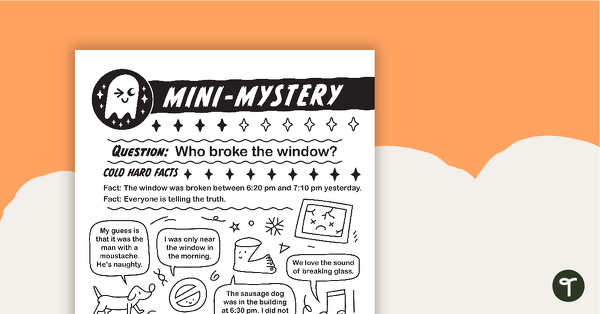
Mini-Mystery – Who Broke the Window?
A fun, logic-based activity where students read clues to solve the mystery.
- Plus Plan
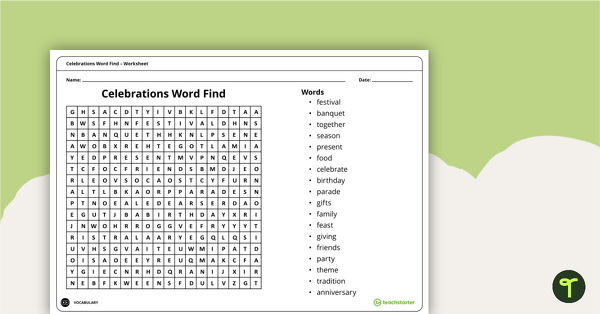
Celebrations Word Find – Worksheet
A word find with vocabulary themed around celebrations and holidays.
- Plus Plan

Mini-Mysteries – Interactive PowerPoint
A set of interactive, logic-based activities where students read clues to solve each mystery.
- Plus Plan
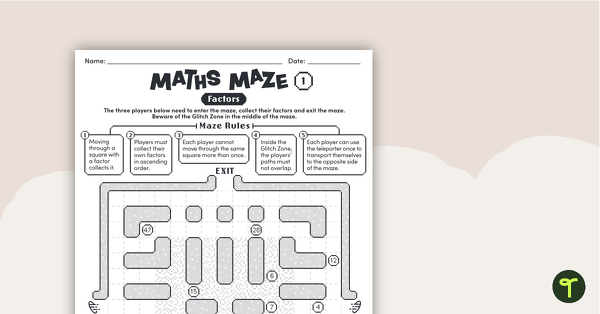
Maths Mazes (Factors)
A set of maths mazes that allow students to demonstrate their knowledge of factors.
- Plus Plan
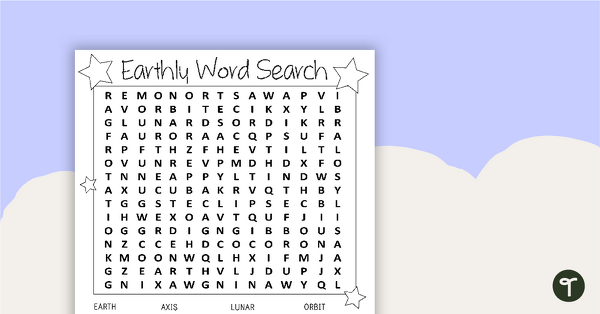
Earthly Word Search with Answers
The Earthly Word Search uses scientific vocabulary in a fun way!
- Plus Plan
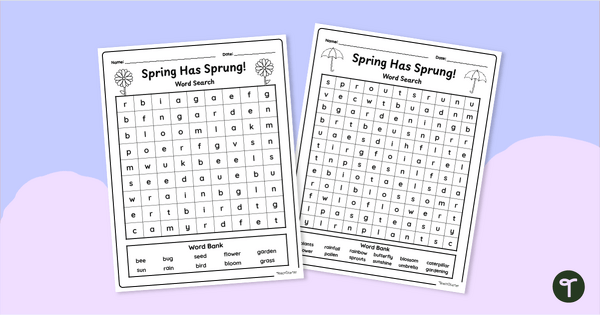
Spring Has Sprung Word Search Puzzles
Slide into a Spring with a pair of differentiated ‘Spring Has Sprung’ Word Search Puzzles.
- Plus Plan
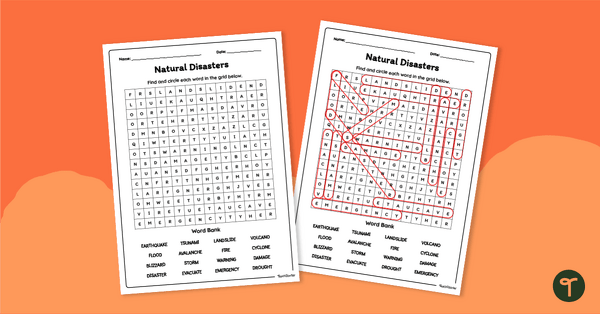
Natural Disasters Word Search
Use a Natural Disasters word search to introduce your students to the vocabulary surrounding these destructive acts of nature.
- Plus Plan
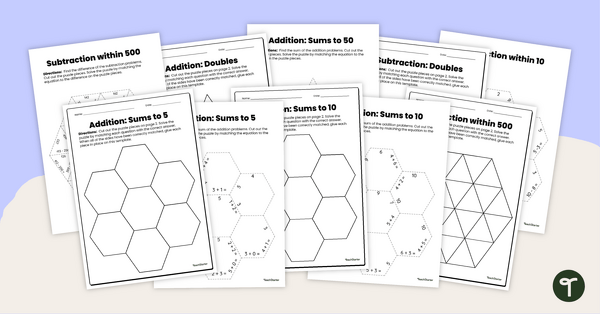
20 Polygon Puzzles - Addition and Subtraction Pack
Explore addition and subtraction with this fun polygon puzzle pack.
- Plus Plan
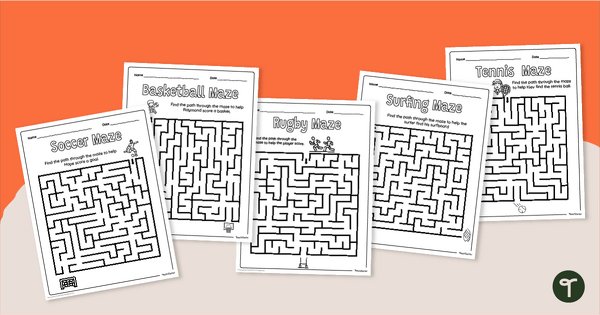
Sport Maze Worksheets
Give your students a much-needed brain break with a set of printable Sport Mazes for kids!
- Plus Plan
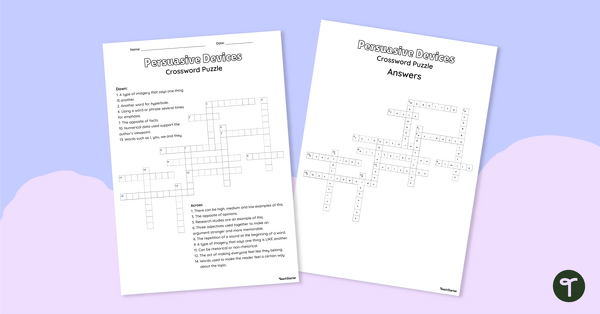
Persuasive Devices Crossword
Familiarise your students with the most common persuasive devices with an engaging crossword puzzle.
- Plus Plan
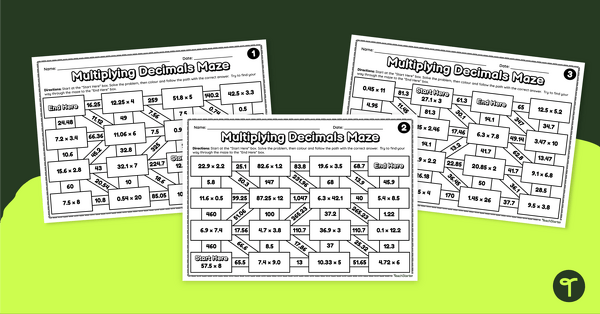
Multiplying Decimals Maths Mazes
Complete decimal multiplication problems while finding your way through this set of three math mazes.
- Free Plan
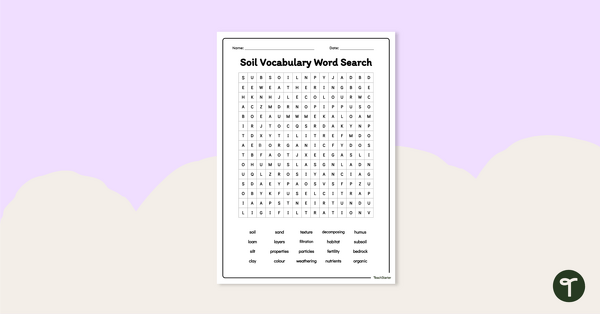
Soil Vocabulary Word Search
Immerse your students in the subject-specific vocabulary related to soil with this word search perfect for primary science lessons.
- Plus Plan
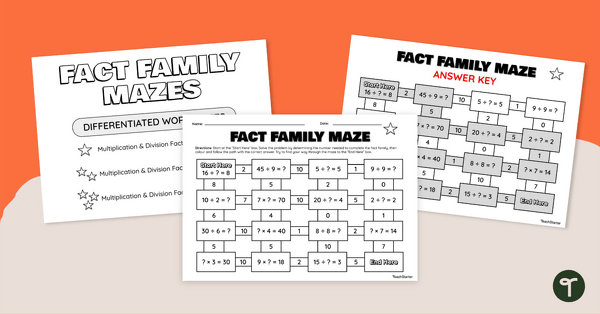
Fact Family Mazes Differentiated Worksheet Set
Use this differentiated worksheet set to provide independent practise of fact family knowledge to solve multiplication expressions.
- Plus Plan
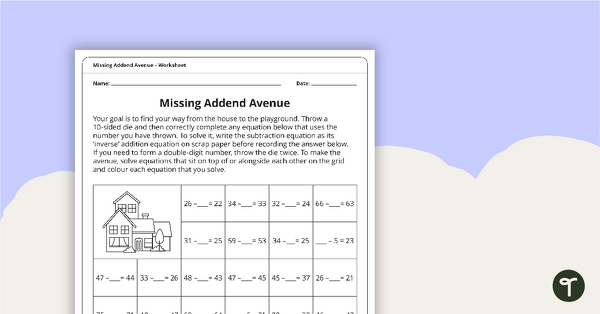
Missing Addend Avenue - Find the Missing Number Worksheet
Practise using various subtraction strategies with a fun dice-roll math maze.
- Plus Plan
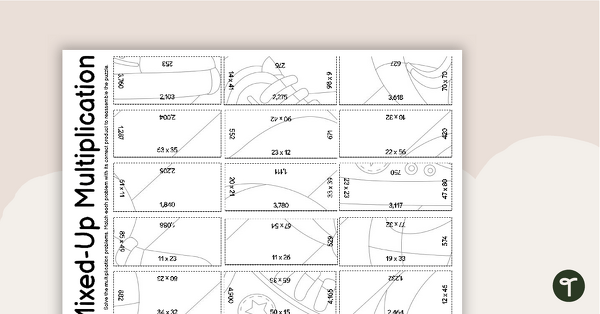
2-Digit Multiplication Tarsia Puzzle - Basketball
Practise multiplying two-digit by two-digit numbers with a basketball-themed tarsia puzzle.
- Plus Plan
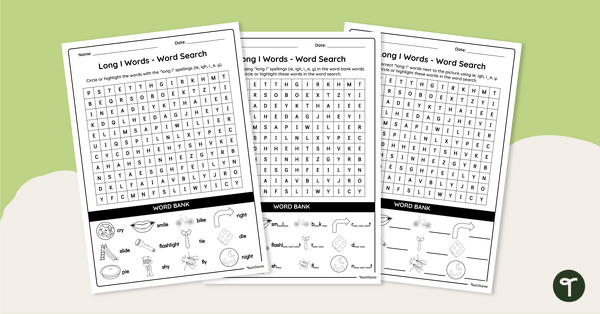
Long I Words - Word Search
Explore words containing some of the most common ‘long i’ graphemes with this set of differentiated word searches.
- Free Plan
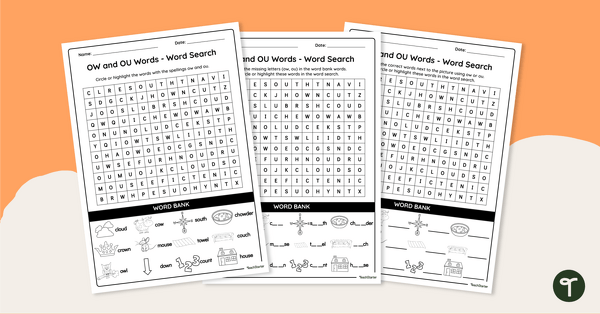
OW and OU Words - Word Search
Explore words containing ‘ow’ and ‘ou’ with this set of differentiated word searches.
- Plus Plan
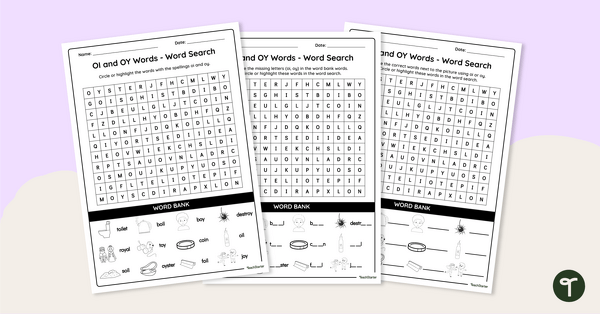
OI and OY Words - Word Search
Explore words containing ‘oi’ and ‘oy’ with this set of differentiated word searches.
- Plus Plan
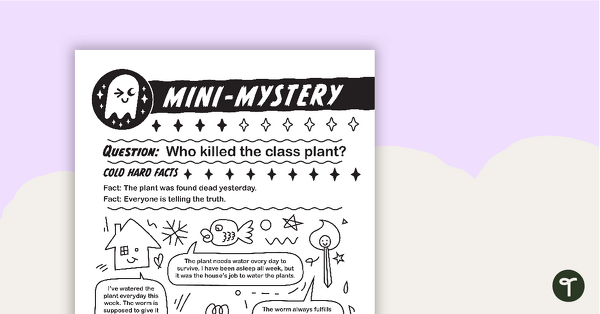
Mini-Mystery – Who Killed the Class Plant?
A fun, logic-based activity where students read clues to solve the mystery.
- Plus Plan
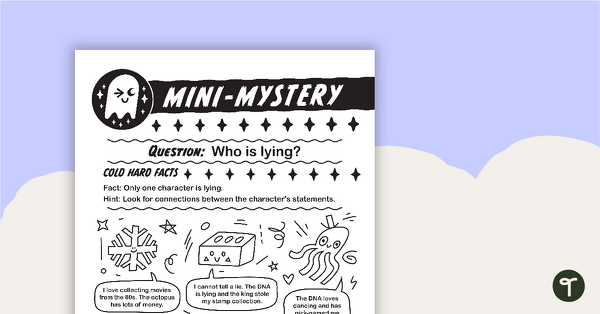
Mini-Mystery – Who Is Lying?
A fun, logic-based activity where students read clues to solve the mystery.
- Free Plan
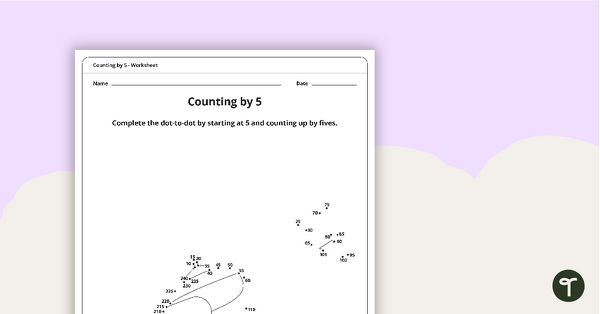
Dot-to-Dot Drawing - Numbers by 5 - Helicopter
Join the dots and numbers to make a picture.